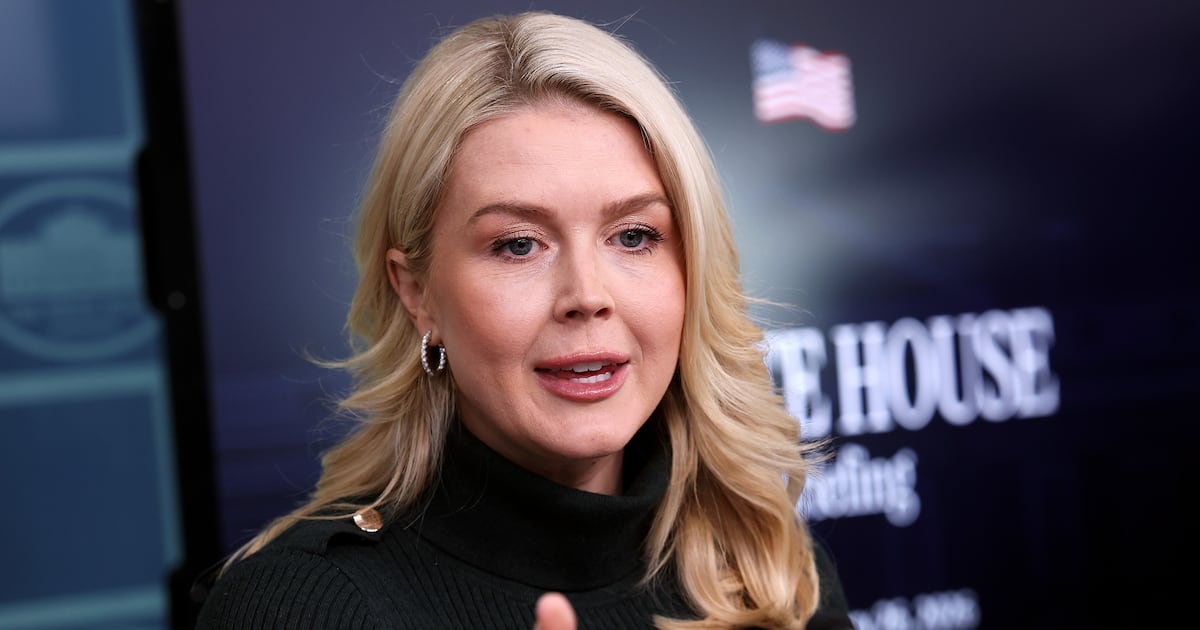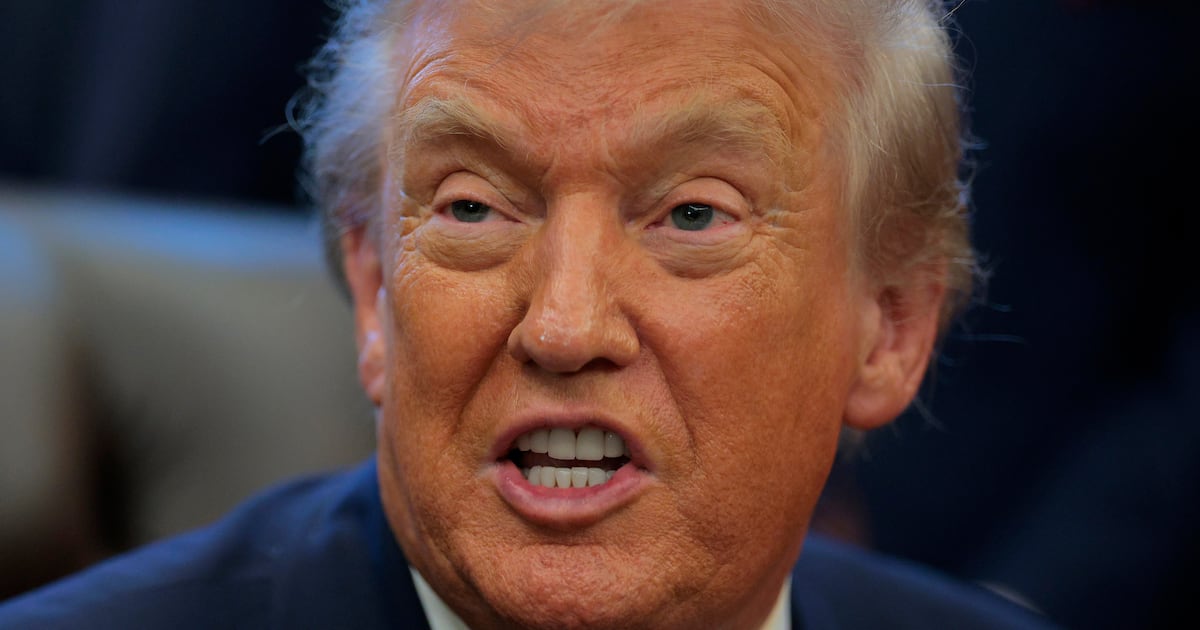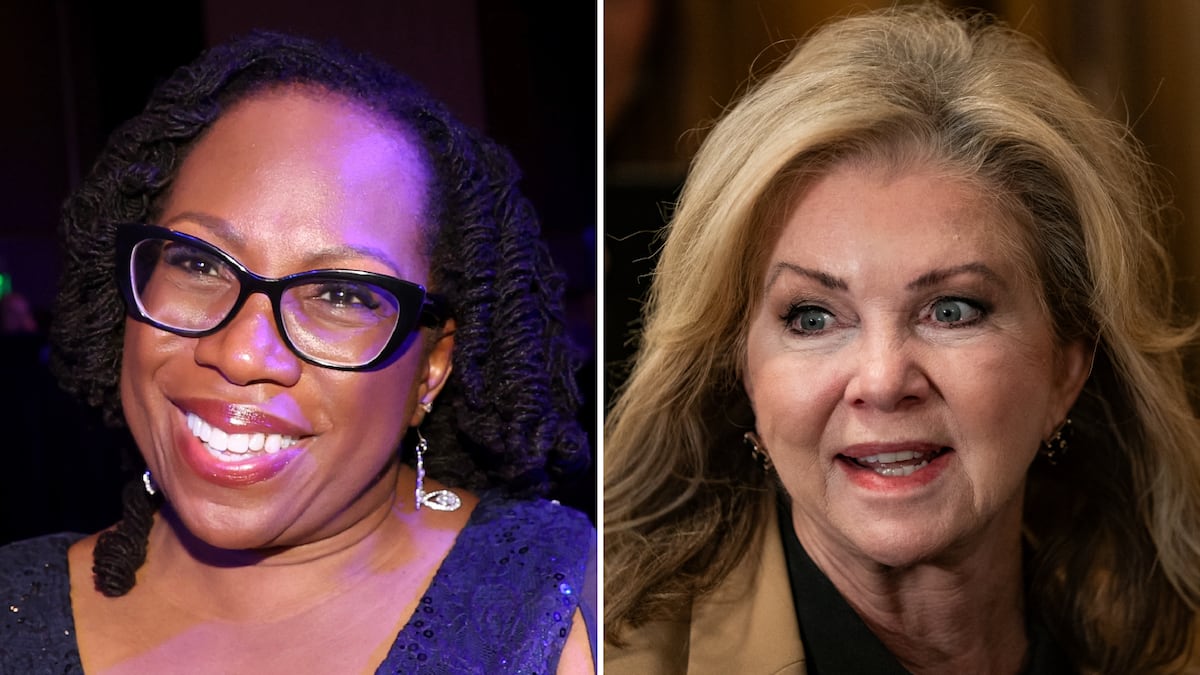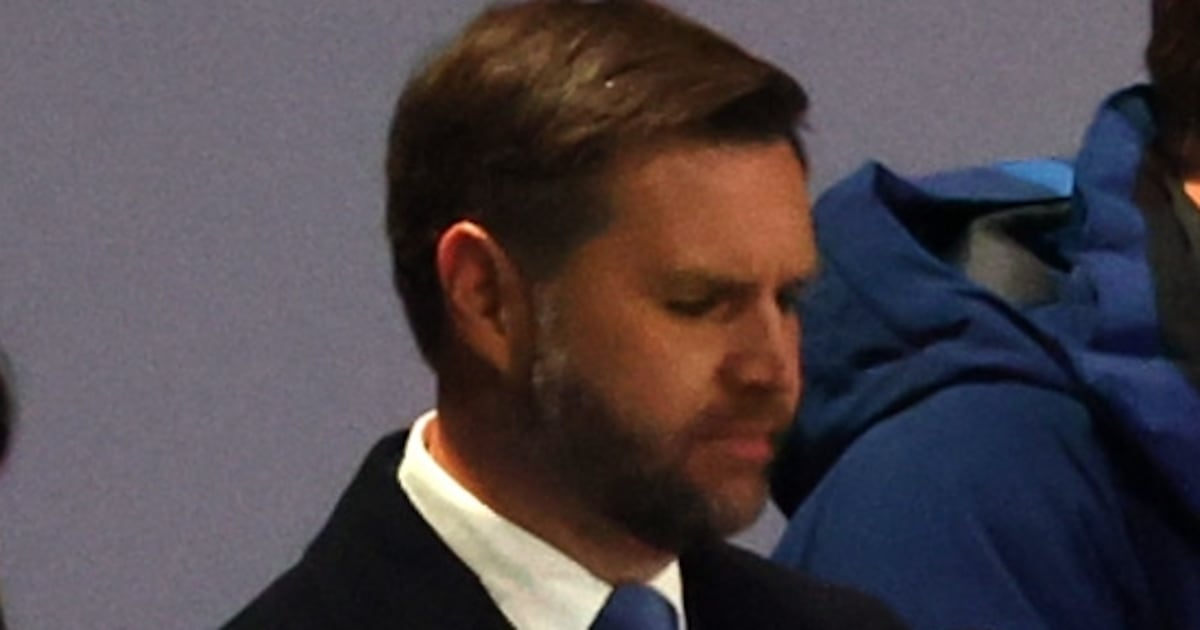Jenny Slate has never been a traditional stand-up comic. And after a lengthy hiatus that followed her 2019 Netflix special Stage Fright—one that included both a global pandemic and the birth of her daughter—she wasn’t sure she’d ever get up in front of an audience again.
“I didn’t have a system in place for how to get back up on stage. I didn’t know how to do that,” she says in this episode of The Last Laugh podcast.
Now, with her new hour Seasoned Professional set to premiere this week, Slate breaks down how she made her way back in front of the mic and why she decided to get so intimately personal in the special.
Slate reflects on how her one unfortunate season as a Saturday Night Live cast member has informed the rest of her career, from finding the right kind of community on projects like Kroll Show and Bob’s Burgers to learning how to make her own unlikely success with Marcel the Shell With Shoes On. She also discusses what it was like to pass the torch of her mixed-race character on Big Mouth to Ayo Edebiri, why she’s not sure if Obvious Child, her comedy film about abortion, would hit viewers in the same way 10 years later, and a lot more.
When Slate started performing stand-up and improv in her early twenties, she didn’t have an end goal in mind. She admits that she did have a “lifetime dream of being on SNL”—one she achieved, albeit briefly, after she was let go from the show in 2010 following a much-publicized accidental F-bomb during her first live sketch. But Slate quickly learned that was far from the only comedy dream available to her.
She didn’t really have a vision of what that would look like until she saw Amy Sedaris play a former prostitute and junkie-turned-46-year-old high school freshman on the cult Comedy Central series Strangers With Candy.
“I just could not deal with how in love I was with that show, with how disgusting it was, with how tragic and in a way sort of brutal, but also weirdly full of heart,” Slate recalls. “I remember seeing that and just being like holy fucking shit, I have never seen this. I haven’t even seen a man be this gross and this horny and just gunning it for sex and and being really inappropriate.” Slate realized she wanted to find a way to “floor it” comedically in that same way.
“Gross and horny” are two good adjectives to describe her latest stand-up special, Seasoned Professional, which arrives on Amazon Prime Video this Friday, Feb. 23. The special contains elaborately constructed bits about her many bodily fluid-fueled embarrassments, from adolescence all the way through early motherhood.
“In order for me to be a stand-up comedian, I’ve always had to believe that I can do it on my own timeline, and there’s not a lot of proof for that, except for that I keep showing up,” Slate says. Every time she takes a break from stand-up, she thinks to herself, “I don’t know, maybe it’s over!” But then she gets back up and realizes she still has so much to say.
Below is an edited excerpt from our conversation. You can listen to the whole thing by following The Last Laugh on Apple Podcasts, Spotify, Google, or wherever you get your podcasts, and be the first to hear new episodes when they are released every Wednesday.
You say pretty early in the special that you want to “share as much as you can share without going to jail.” How do you think about how much of your personal life you share on stage? How do you make those decisions?
I think at this point, just because my daughter is a baby—she’s 3, but to me she’s still a baby—I could ask her a question, and she could answer yes and just honestly not mean it. She has no ability to advocate for herself, really. I can’t be like, “Ida, are you OK if I tell the story about how you…” You don’t need to use everything in order to tell the truth. There’s nothing I’m leaving out, but I generally don’t want to hurt anyone’s feelings, just because that hurts me in the end. I don’t want to hurt myself more than I already feel uncomfortable. But if I talk about my husband, I always ask. And I will say, I’ve definitely cleared it with my therapist about talking about her. But in anticipation of my special coming out, I’ve realized maybe my mom might be hurt by a joke I made about realizing that my therapist isn’t actually my mom.
I could see that.
Yeah, because honestly, I don’t know if my mom’s going to get this joke. I think she might just be hurt by it. She’s not a big comedy person, which is hilarious, because I’ve made this my life. But, I don’t know, I am worried about it.
Have you had that experience of doing something in comedy, whether stand-up or anything else, that you realized had hurt someone’s feelings or was received in a different way than you intended?
No, I actually really haven’t… yet. And I really don’t want to have that experience. I'm not looking for it. I’m not really into ruffling feathers. And it’s not that I’m a suck-up who just can’t say how she feels. It’s just that I genuinely believe there’s probably a way to talk about what’s going on for me without stepping on anyone’s face.
You mentioned that one of your early dreams was to be on SNL. I know you’ve had to talk about this a lot over the years and that it’s maybe not your favorite topic. But it occurred to me that it’s now been 15 years since that time. I’m curious if you feel like you’re able to separate the initial excitement and the fact that you are part of that history, with some of the more negative aspects of how it turned out.
Oh, I would never choose to separate it. I think it’s so fucking cool that I touched that dream. I’m proud of myself and I don’t want to separate it anymore. I don’t know that I ever did. You know, I’m a good student. I like to do a good job. I’m a former speech team kid. I like to win, and being a performer is at the center of my identity. So you can’t remove anything if you want to keep what you received. I think that would be so unwise. And it’s just also not how I work. It’s almost magical in this weird way to think about it. There’s a lot of weird rewards that come from situations that we might think are more shadowy. I don’t go towards the shadow. I’m not one of those people that’s like, let’s try to make it intense so that we can all grow. But I’m also not so foolish at this point that I’m like, [puts on a deliberately dumb voice] “Only the good things give you the good things.”
What were those rewards? What are you thinking about when you say that?
A belief in the long game. A belief in many, many options. It’s really important to believe that there are actually 20 really cool, weird, secret doors rather than one big, golden, ornate, legendary door. That doesn’t make any sense for any artist that has ever existed. There are a lot of little places to scurry in, and then find a bigger space for yourself. I’ve leaned on my community so hard throughout my career. But genuinely, when it comes down to it, even if you’re an actor and you need casting directors to give you jobs and stuff, when you get to set, when you get on stage as a stand-up, it’s all on you. I’m not a loner. I love being around other people, and I’m intensely lonely almost immediately when I’m alone. But if I hadn’t had that experience at the start of my career, I wouldn’t have understood how much is really up to me.
Well, there are so many examples of people who didn’t work out on that show for whatever reason, but have gone on to do incredible things. And I think you’re certainly one of them. I think about your work on Kroll Show [Nick Kroll’s Comedy Central series], which was a very different kind of sketch show. How was that experience different for you?
I mean, it was different because it was different people, a different work culture. And I’ll always thrive in an environment of newness. That’s what my stand-up is about, too, it’s about immediacy. All of the characters were new, and all of the people who worked on the show were eager and unafraid and equal. There wasn’t a system in place and there wasn’t anything to rise to. There was only a show to arrive at.
The stakes must have felt pretty high for Nick, because it was his show and his name was on it. But overall it seems like maybe it was lower stakes in that it’s a smaller show launching without the attention that comes when you’re the new cast member on SNL.
The stakes were different. But the stakes felt high for me, because I wanted to do my best. And I was kind of limping along emotionally, just kind of embarrassed. Of course I was embarrassed and heartbroken at the time. But that’s because I also had a really limited view of where one could be a character actor and sketch performer, and also do really, really good, turbo, cutting-edge comedy. So those stakes actually felt very high for me. They were personal and they were creative, and then to be there and to be guided, written for, but then also allowed to improvise and really do all of the things that I had learned in my improv group at Columbia, it felt like, oh, this is where I’m supposed to be. And this is a step up for me, because I’m growing and I like myself. It’s really important for me to be able to look around my work environment and my home environment and be like, I like myself, and I like how this is going for me, and it’s good. I’m the one that says I like myself. And I do.
The other thing that came out of that post-SNL time was Marcel the Shell. Obviously you couldn’t have known at that point it would become an Oscar-nominated film. What do you remember about the experience of realizing that it was becoming a thing, that it was being seen by millions of people in a very unlikely way? I’m not even sure if that was the goal.
No, no, not at all. I mean, [Slate’s ex-husband] Dean Fleischer Camp, who I made Marcel with—he directed it and he and I wrote it together, and he created the actual character design of Marcel—maybe he had more of an understanding of the internet, but both of us are pretty in-the-moment type of people in terms of creating things. But we also really want to work. He always wanted to be a director, and I always wanted to be an actor. And when we met we were both just out of college, basically, and trying to do that. But no, we didn’t have any idea. He put it on the internet because somebody who had been at that small show in Brooklyn where he had shown it said that their relative had an injury and they were in the hospital and maybe this would cheer them up.
Wow, so it was intended maybe for one person to see, and then tens of millions later—
Yeah, I think when it’s intended for one person to enjoy but you don’t know that person well, so that person could kind of be anyone, but you just have goodwill towards them and you’re like, take what you want—maybe that’s a really good way to connect to as many people as possible. To see the specificity of the sweetness of the stranger, of their humanity, and create your own art specifically, but not really have a deal in place.
The use of your voice was obviously one aspect that stood out. And I imagine that that helped lead to all of this incredible animation work that you’ve done since then. Did you feel like there was a line between Marcel and a lot of the voiceover work you’ve been able to do?
It’s kind of hard for me to tell, actually. I mean, now that we made the feature and we got lovely rewards for it, in terms of recognition or awards, now I think, oh, maybe people know that I did that. But it’s always felt a little bit hard to attach the external Marcel stuff to me as a performer. I know I play Marcel, and he is with me all of the time. And I do the voice a lot for my daughter. And I don’t know what she thinks—that he lives in my mind? I’m not sure. But I actually feel that my voice work started in kind of a parallel journey. I’m not sure how I was able to score this much great work in animation, because being on Bob’s Burgers, being on The Great North, those people are not only so good at writing and so funny, but they’re angels, they are so nice. I love it. I love recording The Great North. I laugh so hard. And when I record Bob’s Burgers, I’m just such a fan of the show, it’s almost confusing to me every time I’m there.
I thought you were so great on Big Mouth as well. You obviously decided to step back from the role of Missy and pass it on to Ayo Edebiri. And it’s been amazing to see her career take off in these last couple of years. I thought the way that you guys handled it ended up being really artful, passing the torch of the character. What were the conversations around, not necessarily the decision to do it, but how to do it?
I actually wasn’t a part of those conversations at all. The producers of Big Mouth let me know that Ayo was going to do it. And so I just wrote her an email at that time, just to say hi, and that was kind of it. Then she and I just became friends outside of it all, which has been a deep delight. She’s exactly what she seems to be, just really phenomenal through and through.
This year is also the 10th anniversary of Obvious Child. It was at Sundance 10 years ago this January. Did you feel like at that time that that was a chance to show a really different side of yourself? To be the lead in a film, a very funny film, but that has some drama to it as well? Ten years later, how do you think about that one?
I think of that as the greatest gift I’ve received as a performer, that Gillian [Robespierre] thought of me for that part. I had never really been in anything dramatic. And I had this feeling about myself that I could do it. But how do you know you can do something until you do it? I’m not one of those performers that’s like—and maybe I’ll get in trouble for this—that’s like, “Offer only!” I’m like, let me get in there and show you that I can do it. Otherwise I’m not going to be sure that I can do it. I need to know that I can do it.
If you got an offer for something way outside of your wheelhouse, that might make you a little nervous?
Yeah. I mean, I would do it. I think I would do it. I’m not saying that I wouldn’t, but I really like the opportunity to show that I can. I just need a lot of evidence for myself. But for Obvious Child, they did just bring it to me. I remember calling my dad about three-quarters through the shoot and being like, I’m doing something here that I’ve never done before. And I’m not stumbling through it. I am fully here. I am fully operational. I’m in control, but I’m also innovating in terms of my own understanding of myself as a performer. I was saying to him, this is the start of something new for me. And that has nothing to do with whether or not I would get recognition for the role. But it was like, I’m somewhere I’ve never been. And I’m going to be able to come back to this creative space, whether or not it’s in acting, or maybe it’ll be in writing, but I’ve never played these keys before, emotionally speaking. And I can. I’m totally here. It’s me. I can do it. And it just opened so much up for me as a performer. It was such a positive experience. It was a dream. I loved every second of it.
Revisiting the film did make me wonder whether it would be harder to make a comedy that’s so centered on abortion 10 years later.
I know. It’s so weird, because in a way abortion doesn’t feel like as much of a taboo thing to speak about as it did then. But it is a medical procedure that is so strongly prohibited and so strongly blocked. And so many people are getting in the way of reproductive justice.
In the movie, the choice that your character has is a given, in a way that it wouldn’t be in so much of the country now.
Yeah, there’s just different things to talk about in regards to reproductive justice right now. I think we made that movie at the right moment for that movie to be made. And I’m really, really glad we did.
You said you found a new mode of working in that film. Have you been able to get back in that mode as much as you would like to over the years? Are there projects that you would want to do more in that vein that you haven’t been able to do?
I feel like when we made our second film [written by Gillian Robespierre and Elisabeth Holm] called Landline, which is a really great movie, it was a time for me to get into that zone again. But it was a really difficult time for me personally, so it felt like the work was my life raft, but everything else was a really stormy sea. Whereas when I made Obvious Child, I felt really stable in my life. And it was a really good time on and off set. So it’s kind of sad, because when we made Landline, I was gripping onto the work. And I did the work that I wanted to do. I’m very proud of that performance. And I kind of wish more people had seen that movie.
But I think I’m about to enter some work that will really help me return to the breadth of how wide I can go in my emotions. I’m really excited for my next job, [the FX limited series] Dying for Sex [co-starring Michelle Williams]. I’m about to start it at the beginning of March and I’m really, really, really excited by everyone I’m working with, and the scripts are really good and the performers are outrageously good. I’m just really interested in finding more and more of those zones.
Listen to the episode now and follow The Last Laugh on Apple Podcasts, Spotify, Google, or wherever you get your podcasts to be the first to hear new episodes when they are released every Wednesday.






